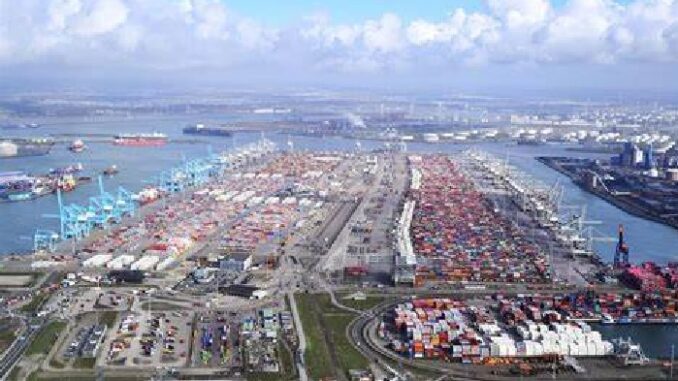
Ports are key partners for Europe’s future sustainability and resilience and are more than ever needed. ESPO adopts valencia declaration on empowering europe’s ports.
01 June 2022
ESPO represents the port authorities, port associations and port administrations of the seaports of 22 Member States of the European Union and Norway at EU political level. ESPO also has observer members in Albania, Iceland, Israel, Montenegro, Ukraine and United Kingdom.
The European Sea Ports Organisation and its members met in Valencia for its General assembly on 1st June, where they have agreed on the following Declaration:
Europe’s seaports played a strategic and essential role throughout recent crises. Ports are key partners for Europe’s future sustainability and resilience and are more than ever needed. To step up this role and give full recognition to their crucial contribution to the decarbonisation and repowering of Europe, ESPO calls on governments at all levels to empower the European port ecosystem. This implies full recognition of the strategic and essential role of ports. This further means both the financial and non-financial support required to make ports robust and resilient in pursuing their strategies and pathways in decarbonising and repowering Europe. Relentless and pressing investments in safeguarding and further enhancing critical port infrastructure and optimising the maritime and hinterland connectivity of ports are needed to allow ports to continue to be essential nodes in the supply chain, ensuring the mobility of people and strategic players in the new energy landscape.
Over the last two years, the strategic and essential role of Europe’s ports has come to the forefront.
During the COVID-19 crisis, Europe’s ports maintained the continuity of operations and ensured the security of supply. Europe’s ports activated contingency plans, which resulted in ports remaining fully operational during this crisis. More than ever, European ports demonstrated their essential and critical role in facilitating the supply of necessary goods and materials.
In the current geopolitical crisis caused by the Russian invasion in Ukraine in February 2022, Europe’s ports are again playing a crucial role in keeping supply chains operational and in setting up new alternative routes, including humanitarian lanes and solidarity lanes for Ukrainian exports. In addition, European ports are pivotal safeguarding the energy supply and in reducing the energy dependency from Russia. Ports in Europe will be instrumental in repowering Europe in the short term, by enhancing the setting up of alternative routes for the provision of gas and increasing gas storage. At the same time, ports will be key in stepping up the efforts to prepare for a fossil-free energy landscape in Europe.
In order for ports to play this strategic and essential role both in the recovery, the decarbonisation and the repowering of Europe, ESPO believes that ports must be empowered in four ways:
1. The strategic and essential role of ports and its managing bodies should be fully recognised by the European institutions, national, regional and local governments. Ports and their infrastructure should be considered as strategic assets.
2. Ports should be prioritised in the EU’s and national investment plans. In an overall difficult economic context, characterised by higher interest rates, inflation, steep increases in energy prices and disrupted markets of raw materials, financial priorities will have to be made. Ports should be considered in that context.
3. Ports play specific roles and have different profiles. Therefore, port managing bodies should be able to identify and boost, together with their stakeholders, the investments that add most value and deliver best in achieving the EU’s decarbonisation and repowering Europe goals in their individual contexts. Ports should be given the tools and should be supported in developing the best business case and the best economic case to fulfil their mission and avoid stranded assets.
4. Ports in Europe must be able to count on a legislative framework and investment climate that enables them to plan for the long-term while remaining agile and flexible to be able to quickly respond to rapidly changing economic, geopolitical and environmental realities. Authorisation procedures and funding processes, as well as other administrative procedures should be accelerated and applied in coherence with the EU’s overarching goals and should not unnecessarily delay the realisation of projects.
ESPO HISTORY
In 1974, the European Commission set up a Port Working Group, consisting of port authority representatives from Europe’s major ports. Early 1993, the European Sea Ports Organisation was born out of this working group, as an independent lobby for seaport interests. Founding Chairman was the late Ferdinand Suykens, former director-general of the Port of Antwerp. During its initial years of existence, the organisation established itself in Brussels, focusing on a variety of policy and technical issues. Significant initiatives were the publication of the first Environmental Code of Practice in 1994 and the establishment of EcoPorts a few years later.
The debate on the European Commission’s ports package, which was issued in 2001, marked a kind of ‘coming of age’ period for ESPO. It made members reflect and become more conscious about their role as port authorities and it strengthened the internal cohesion of the organisation.
In 2009 ESPO set up a joint office with EFIP, the European Federation of Inland Ports
